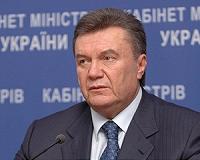 |
Baghdad (UPI) Mar 12, 2009 Iraq is embarking on an unprecedented expansion of its oil industry that aims to turn it into one of the world's top three producers in a few years. But as it does so, the foreign oil companies that will make this happen risk becoming targets for terror. The precedent is Nigeria. There, international oil giants such as Royal Dutch Shell, BP and Chevron -- among the companies setting up in Iraq -- have been battered by rebel tribesmen demanding a more equitable share of the oil revenues over the last five years. The depredations of these rebels in the Niger River Delta in southern Nigeria took such a toll that the country's oil production was slashed by one-third. "Iraq could be Nigeria on steroids," cautions industry analyst Raad Alkadiri of the Washington global energy consultancy PFC Energy. "Essentially what you have is a state that doesn't have the monopoly on force. Looking forward, there is certainly the possibility that the Nigerian situation could be repeated." Between the U.S.-led invasion of Iraq in March 2003 and the "surge offensive" of 2007-08 that hammered al-Qaida and other insurgents, Iraq's oil industry was critically damaged by constant attacks. Once the foreign firms recently awarded 20-year production contracts in the biggest oil auction in history start operating, they could become targets for al-Qaida and other armed groups as U.S. forces withdraw. Some of these companies are more vulnerable than others, particularly those that will operate in Anbar province and other areas where the insurgents are most active. By hitting these drilling operations, the insurgents will be weakening the central government in Baghdad, opening the door to endless strife. The government is banking on boosting oil production from the current 2.4 million barrels per day to 10 million-12 million over the next six years to pay for massive national reconstruction. If it can't pull that off, the alternative is another descent into the kind of sectarian bloodletting that followed the toppling of Saddam Hussein's brutal regime. But there is another danger: Iran. Arab Iraq's Persian neighbor to the east, its centuries-old rival, has long coveted Iraq's oil wealth. Iraq's known reserves total 115 billion barrels but it probably has as much again in untapped reservoirs. According to Amy Myers Jaffe of the James A. Baker III Institute for Public Policy, "There are 74 identified oil fields in Iraq but only 15 have been developed." Iran, the second-ranking producer in the Organization of Petroleum Exporting Countries, does not want to see its position challenged by its old foe, even one that is now dominated by fellow Shiites. Tehran recently revived its demand Baghdad pay billions of dollars in reparations for the 1980-88 war that was deemed to have started when Saddam sent his army into Iran's southwestern province of Khuzestan, the center of its oil industry. It has also made short armed forays across the poorly defined border to occupy oil wells in disputed fields it claims for its own. Most of Iraq's oil reserves are in the Shiite-dominated south and along the border. Once U.S. forces complete their withdrawal, scheduled for late 2011, Iran could, if it so chose, intensify the clandestine operations it is currently carrying out in Iraq to destabilize the country, or even make an outright land grab. Iran's economy is bad trouble and that's likely to get worse if the United States wins support for tightening sanctions that have already taken a heavy toll. For many years, Iran's energy industry, the backbone of its economy, has been starved of investment and the advanced Western technology it needs because of U.S.-led embargoes. The last thing it wants to see is Iraq, its adversary from antiquity, overtake it in the energy stakes. Tehran finds that it has common cause on this with other major OPEC producers, some, like Saudi Arabia, no friends of the Islamic Republic. But the Saudis and other Arab producers are not at all happy at the prospect of Iraq, which has been outside the cartel's quota system since Saddam invaded Kuwait on Aug. 2, 1990, producing without restraint and threatening a drop in prices. By all accounts, Iran and Saudi Arabia are plotting ways to keep the upstart Iraqis in line. Baghdad is not expected to meekly bow to OPEC's demands. So a political storm is brewing over Iraq's future production and many analysts believe it won't be too long before it breaks.
Share This Article With Planet Earth
Related Links Powering The World in the 21st Century at Energy-Daily.com
 Yanukovych has new coalition, major tasks
Yanukovych has new coalition, major tasksBerlin (UPI) Mar 11, 2009 Ukrainian President Viktor Yanukovych Thursday formed a new coalition in a country that observers say can become an important security link between Europe and Russia. Yanukovych's Party of Regions signed an agreement with the Communist Party and the Lytvyn bloc to form the coalition that includes 235 deputies from the 450-member Parliament. Yanukovych, who is considered pro-Russi ... read more |
|
| The content herein, unless otherwise known to be public domain, are Copyright 1995-2010 - SpaceDaily. AFP and UPI Wire Stories are copyright Agence France-Presse and United Press International. ESA Portal Reports are copyright European Space Agency. All NASA sourced material is public domain. Additional copyrights may apply in whole or part to other bona fide parties. Advertising does not imply endorsement,agreement or approval of any opinions, statements or information provided by SpaceDaily on any Web page published or hosted by SpaceDaily. Privacy Statement |